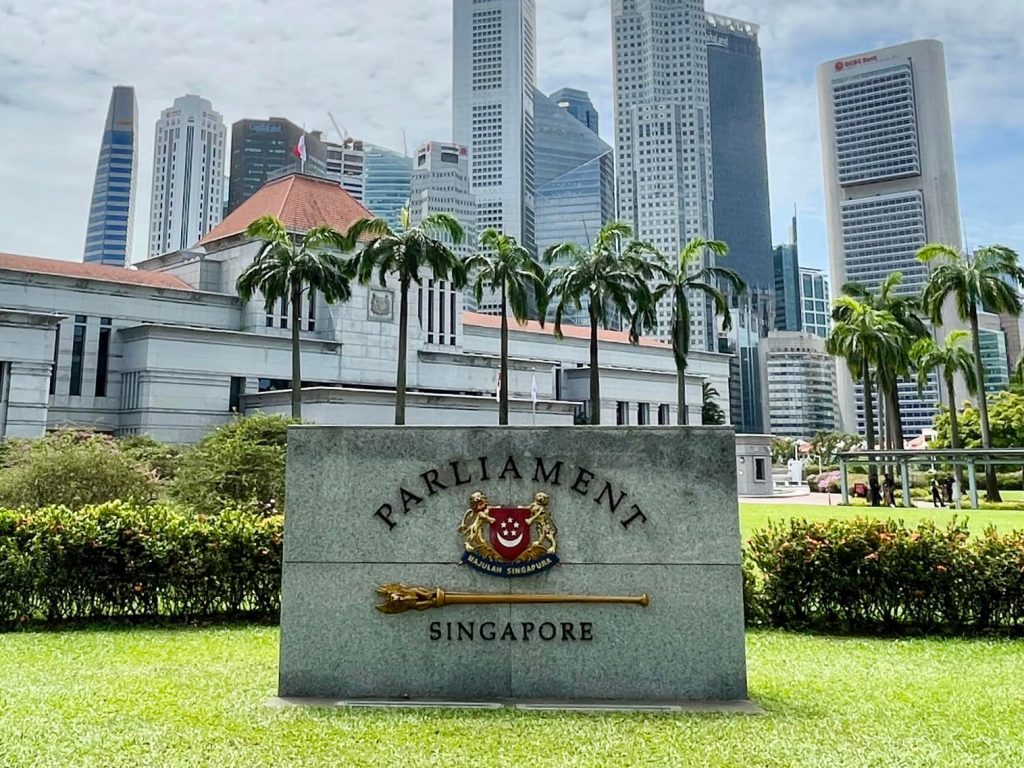Top image: Singapore Prison Service / Facebook
We’ve all heard the saying “do the crime, do the time”. Under the new Sentence for Enhanced Public Protection (SEPP) regime, however, some offenders of serious or violent crimes may be detained indefinitely, even after serving their time.
This indefinite detention isn’t punishment for any offence committed. It’s a precaution. The idea is to keep the public safe from people who show a serious propensity to re-offend.
ADVERTISEMENT
The SEPP is part of the Criminal Procedure (Miscellaneous Amendments) Bill passed in Parliament this week. This Bill also includes amendments that lay out a new legislative framework for forensic medical examinations and give police officers more power to conduct searches without warrants. (We’ve already gone into why the latter is also concerning.)
For a new law that gives the authorities the legal right to jail someone forever, it’s quite a bit to wrap your head around. It’s also counter-intuitive to argue against keeping potentially dangerous people off the streets.
15 Members of Parliament (MPs) and Nominated MPs rose to seek clarifications on the bill. But it still passed with support from both sides of the bench.
What’s New?
Before this new Bill came to pass, we already had preventative detention, which a court can order if an offender is recalcitrant. Under this order, an offender aged 30 and above can be imprisoned between seven and 20 years to keep the public safe from them.
Then, there is also a corrective training regime, which can be imposed on repeat offenders aged 18 and above.
However, the underlying issue with these sentencing options is that offenders would be released automatically after the sentence is completed, even if they still pose public safety threats, say the Ministry of Law (MinLaw) and Ministry of Home Affairs (MHA). “Our current sentencing options are inadequate to deal with such egregious offending,” said Minister for Law and Home Affairs K Shanmugam.
The passing of the new Bill also means the repeal of the corrective training regime and amendments to the preventive detention regime.
For offences that do not call for life imprisonment but are serious nonetheless—such as culpable homicide, attempted murder, rape, and sexual penetration of a minor—the court will now have the option to impose either a regular sentence or an SEPP.
To be eligible for SEPP, the offender would have to be 21 or above at the time of the offence and be considered “extremely dangerous”. Reports from experts and the Institute of Mental Health will be reviewed for the sentencing.
Besides recalcitrant offenders, first-time offenders can also be given an SEPP.
An offender slapped with SEPP would have to serve the minimum sentence specified by the court, which can range from five to 20 years. With advice from a detention review board, it’s up to the Minister of Home Affairs to decide if they’re suited for release or need to remain in detention. A minister will be the final arbiter.
To help their case, the offender can make written representations independently through a family member or a lawyer, and their case will be reviewed every year.
But let’s look beyond fixing moral panic by keeping sexual fiends off the streets. What does the SEPP actually mean for offenders and our judicial process?
And what was missing from the debates on the matter in Parliament?

Indefinite Detention
The court plays an important role in our criminal justice system. It evaluates evidence, decides if an accused person is guilty of a crime, and decides on an appropriate sentence.
ADVERTISEMENT
In deciding what’s appropriate, four principles are considered:
1. Deterrence. The sentence should deter the offender and others from committing the crime.
2. Rehabilitation. The sentence should serve to reform the offender.
3. Proportionate punishment. The sentence should be commensurate to the seriousness of the crime and the offender’s blameworthiness.
4. Prevention. A longer sentence may be in order to prevent the offender from causing further harm to the public.
Senior Parliamentary Secretary for Law Rahayu Mahzam explained in her address in Parliament that the continued detention under the SEPP was “no longer to punish the offender, but to protect the public.”
As much as it’s important to consider public safety, there should be wider discussions on whether indefinite detention (in principle) is fair, just, and humane.
First, let’s be clear: preventing violent and sexual crimes is a must.
But predicting human behaviour is always a tricky, subjective thing—are we basically using data to punish people indefinitely before the actual crimes are committed? Because it feels very Minority Report right now.
Besides the weight of what’s essentially a life sentence (unless they get a reprieve), offenders also carry the uncertainty of not knowing if they’ll ever be released.
Regular sentences have an expiry date. How do you plan your life and future if you don’t know whether you’ll still be detained decades from now or if you’ll be released in a year?
We can look to the United Kingdom, where similar legislation was introduced in 2005, for an idea of what SEPP might look like for offenders.
The imprisonment for public protection (IPP) sentences were introduced in England and Wales for dangerous criminals who posed a significant risk to the public. They were given indeterminate sentences with a minimum period in custody decided by the courts. They would remain in custody until a parole board decides if they were fit for release.
Unfortunately, the regime did not go over well. It has since been referred to by several British politicians as a “stain” on their criminal justice system.
Beyond criticism of the provisions being too broad and unclear, there was clear psychological harm to offenders with IPP sentences.
A 2022 report on IPP sentences noted “emotional and mental deterioration”, as well as high levels of self-harm and some suicides within the IPP population.
According to the report: “Suicidal thinking and suicide attempts featured frequently in the testimonies of those serving the IPP sentence in prison, with many citing the sentence itself as a major contributory factor.”
The UK abolished IPP sentences in 2012. But that doesn’t mean that such a sentence won’t work in Singapore—IPP was imposed for cases involving less serious offences. The model here has a narrower criteria for when the sentence can be imposed.
Even if the application of the SEPP isn’t exactly the same, the indefinite nature of the sentence remains.
In response to Parliamentary questions on the rehabilitative resources available to those with SEPP sentences, Ms Rahayu mentioned in her address that offenders will have access to rehabilitative programmes and psychology-based interventions.
Will that be enough for them to deal with the psychological weight of an indefinite sentence? Would offenders be incentivised to seek help for mental health issues if they thought it could negatively affect their chances of release?
The IPP report quotes one offender: “I don’t speak to staff as any mention of a mental health issue goes on your prison record and will be brought up at board and can block release.
The truth of it is we are all suffering from mental health problems because of the sentence, but we are frightened to speak up.”
With the implementation of SEPP in Singapore, safeguards need to be in place so similar issues don’t crop up here. Offenders deserve to know that they can be forthcoming about any psychological struggles and that they get the help that they need.

The Decision Maker
The independence of the judiciary from the government is a basic tenet of democracy. An independent judiciary is meant to be fair and consistent. It ensures that the law applies to everyone, even the government.
Mr Shanmugam emphasised that it is the courts, and not the government, that will decide whether or not to impose an SEPP on an individual.
But after they’ve served their minimum sentence, it is still up to the Minister of Home Affairs whether the individual goes free or not. With a minister having the power to decide how long someone is detained, does it feel like a blurring of lines between the Judiciary and the Executive?
To their credit, several MPs did raise questions in a similar vein of why a minister (hence a member of the executive branch) should decide if an offender is detained.
Ms Rahayu responded that the Minister of Home Affairs has the say as the decision is made after the minimum sentence imposed by the courts.
“It involves a complex assessment of multiple factors, including the risk that the offender might re-offend, his conduct in prison, and his rehabilitative progress and prospects. The logical and principled approach is for this to be an executive decision.”
In cases of corrective training, preventive detention, and life imprisonment, the Minister of Home Affairs is already the decision maker, she also mentioned.
While there are similar laws in the US which apply to sexually violent persons (SVPs), and application may differ from state to state, it is still generally the court that conducts the annual review of the offender. Not the executive branch.
Determining how much of a danger someone is to society is indeed complex. It’s complex enough that we need a detention review board comprising experts such as psychologists, senior psychiatrists, retired judges, and senior lawyers, as Mr Shanmugam said in his Parliamentary address.
But at the end of the day, a minister will still have a say on whether an individual needs to continue being behind bars. And Singapore will just have to trust his or her judgement to make the right call.
Who Watches the Watchmen?
There’s no doubt that there are clear, tangible benefits to the SEPP in Singapore. Anyone reading about heinous criminals such as the man who raped his cousins’ sons and the tutor who sexually abused special needs children would agree that they pose significant dangers to society and need to be locked up.
Thus, the conundrum emerges (again). On one hand, we want to protect the vulnerable from predators. On the other, we’ll just have to be okay with compromising some rights in the name of security.
Arguing for the rights of dangerous criminals isn’t going to win us any popularity contests, but we should be concerned about the potential normalisation of detaining citizens indefinitely. With or without trial.






